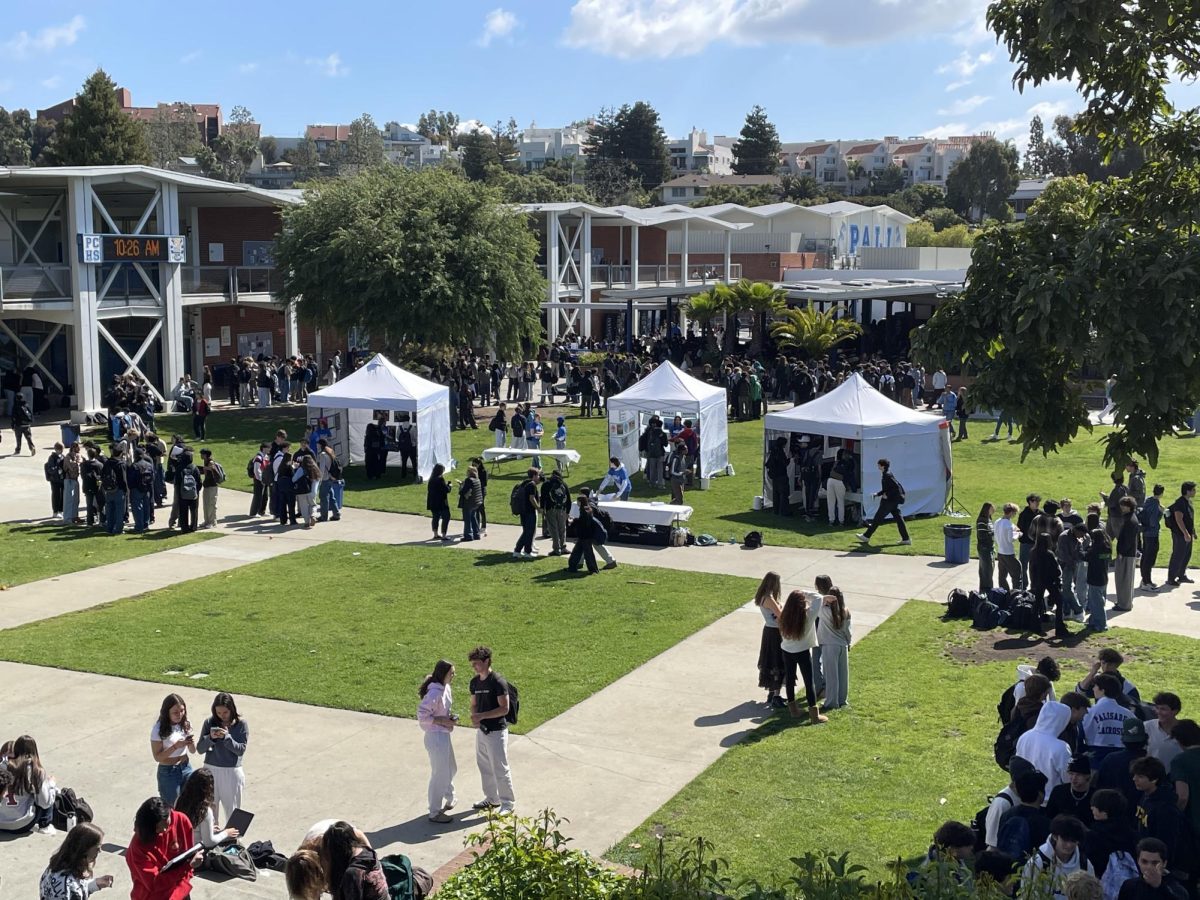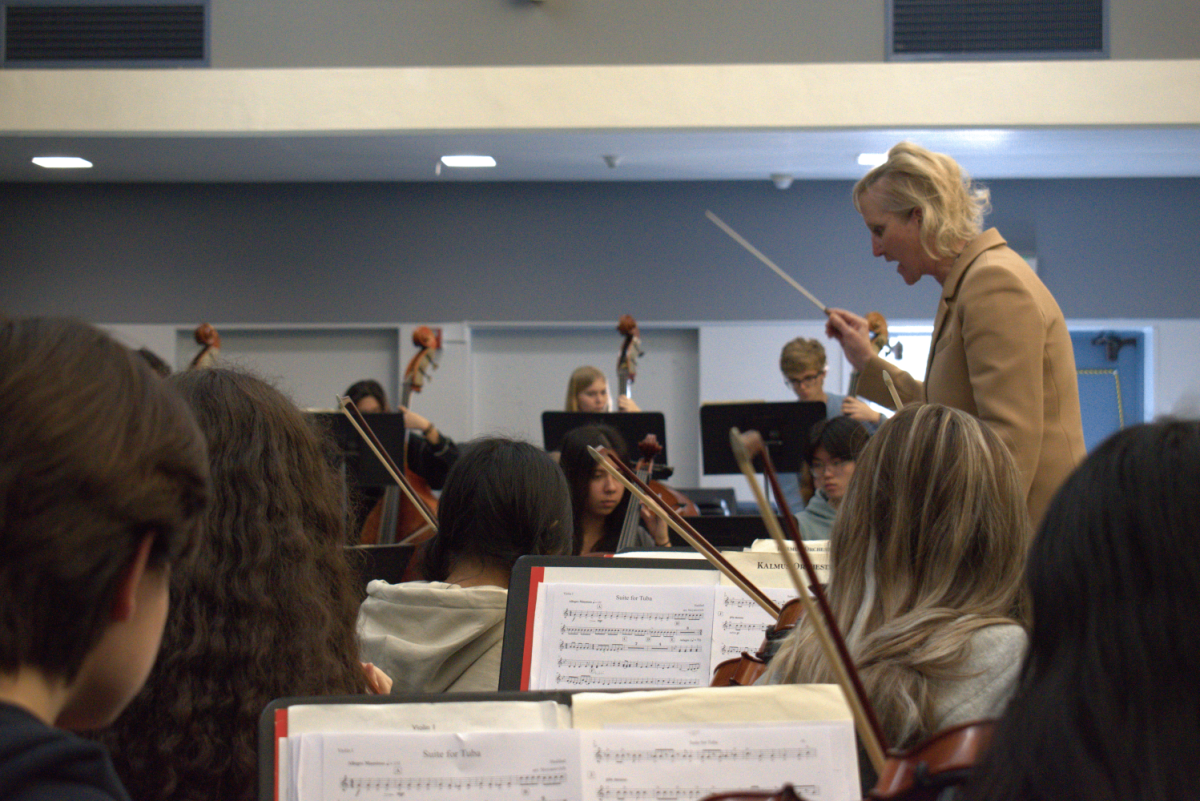Palisades Charter High school enacted a minimum day schedule on Friday, Oct. 27, due to a power outage that affected the area for more than 12 hours.
Pali administration was notified of the outage at approximately 6:30 a.m., and informed families shortly after. The email sent to families via ParentSquare stated that the power outage was expected to cause heavy traffic due to impaired traffic lights, and that there would be no school Wi-Fi. In addition, administration announced that the Prospective Family School Tour would not be canceled; however, an update at around 8:30 a.m. confirmed that all on-campus events were canceled for the day. As a result, the tour was rescheduled for the following Friday, Nov. 3.
The email also announced that Pali would observe a minimum day, with school releasing two hours earlier than normal, at 12:25 p.m. As a result, class periods one, three and five were shortened by around 30 minutes.
Aquatics Director Brooke King was involved in the executive decision-making regarding the outage. She explained that, because the Palisades regularly has various electrical challenges due to the nature of the infrastructure and lack of a substation, the area is susceptible to a power outage at any given time.
“A utility failure or power outage is actually an emergency,” King said. “It was determined by the administration that it was too late in the game to cancel school, so we had to start to prepare to receive students without any power.”
The Community Emergency Response Team was mobilized in response to the outbreak, coordinating with administration to come up with a resolution.
The attendance office was unable to verify information digitally due to the outage and its effects on school Wi-Fi. Teams opted to organize necessary supplies at Mercer Hall, where tracking attendance and check-outs were done on paper.
The loss of Wi-Fi throughout the school was also an imposition for teachers on campus.
Associated Student Body (ASB) advisor and Advanced Placement United States History (APUSH) teacher Robert King said he experienced a disruption to his class agenda due to the outage.
“Education now is inextricably connected to utilizing Wi-Fi in the classroom,” Robert King explained. “The network is essential for day-to-day operations to be reliable.”
Originally, the plan for his first and third period APUSH classes was to administer their unit four exam, which consisted of a 50-minute multiple-choice section and 50 minutes to write a document-based question essay (DBQ).
However, due to the shortened day, these classes were excused from the DBQ portion of their test, and completed a 45-question multiple-choice portion in the allotted 75 minutes instead of the original exam. To compensate for the essay that his odd periods missed, Robert King said that he changed the DBQ to a take-home essay on an AI-powered website, Class Companion. The assignment was also adjusted to 20 points instead of the original 75 points.
Robert King said that Pali’s administration made their biggest effort and were efficient in handling the situation, given that it was unprecedented.
“Because they had limited time to make decisions, they did the best they could do and decided that making the change to a minimum day was necessary,” he added.
Although Robert King’s first and third period students did not have to complete the DBQ essay in class, the students still had to take the multiple-choice assessment under unusual circumstances and in a dim, poorly lit room.
Junior Clancy Esdy Johan, a student in Robert King’s period three APUSH class, said that taking the exam under these conditions made it more difficult.
“Overall, the day was more laid-back than usual; that test was really the only hard part,” Johan said.
Unlike Robert King, Johan believes that the administration did not handle the power outage well, as she believes they ultimately failed to efficiently regulate student activity.
“I think [Pali administration] did the best they could, but I could tell they were panicking a bit with the amount of announcements and yelling over the speakers for students to stay in class,” Johan said.
Overall, Johan said that it would have been a better decision for administration to close school for the day.
“I think that with situations like these, the school should expect students to just leave,” she said. “There’s no controlling that they’re gonna ditch, so I don’t see the point in yelling at them to get back in class.”








